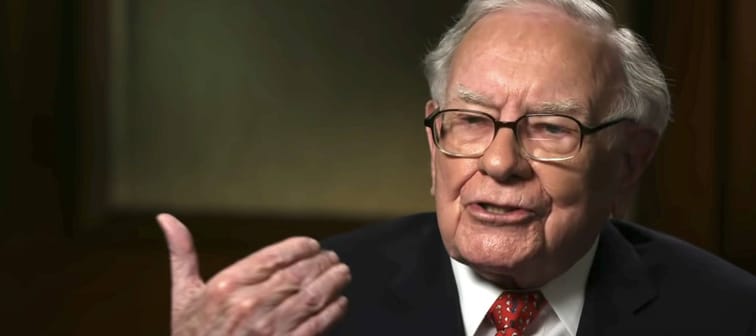Zero-Balance Mentality
Buffett seems to enjoy living well below his means despite his massive fortune.
Unfortunately, some people operate under a zero-balance mentality. A person might believe they can get away with spending $1,000 a week if they earn $1,000 that week. In reality, they can actually only afford to spend less than $1,000 if they account for unexpected expenses and the need to save.
This may be one of the reasons why the personal savings rate in the U.S. is below pre-pandemic levels at 4.1% of disposable income as of November, according to the Federal Reserve bank of St. Louis.
Meet Your Retirement Goals Effortlessly
The road to retirement may seem long, but with WiserAdvisor, you can find a trusted partner to guide you every step of the way
WiserAdvisor matches you with vetted financial advisors that offer personalized advice to help you to make the right choices, invest wisely, and secure the retirement you've always dreamed of. Start planning early, and get your retirement mapped out today.
Get StartedBuy Now, Pay Later
Buffett has never been a fan of leverage, which is the use of borrowed funds to raise one's trading position.
"If you don't have leverage, you don't get in trouble. That's the only way a smart person can go broke, basically,” he told the U.S. government in 2010 as part of an investigation into the 2007-2008 financial crisis.
Accordingly, Buffett's Berkshire Hathaway has a debt-to-equity ratio of just 0.25. But the average American seems unable to manage the same level of risk: U.S. household debt accounted for 64.1% of GDP as of September, according to CEIC Data.
Americans, especially younger consumers, appear to be getting acquainted with buy now, pay later (BNPL) services. These services allow consumers to acquire items they can't afford by paying in installments In fact, 57% of respondents to a survey published by FinMasters said they regretted using BNPL services after a purchase, highlighting the issue.
Debt in all forms, from excessive mortgages to BNPL schemes, create barriers to wealth accumulation for the average person.
Keeping Up With Your Neighbors
To many, the grass can seem greener on the other side of the fence, and this type of thinking can drive some to overspend in order to keep up appearances with their neighbors. According to Buffett, this is also the cause of risky financial behavior and bubbles in the economy.
"People start being interested in something because it's going up, not because they understand it or anything else,” he told CNBC during an interview in 2018. “But the guy next door, who they know is dumber than they are, is getting rich and they aren't."
Envy shouldn’t drive financial decisions. Avoid this mistake if you’re trying to build long-term prosperity. After all, Buffett himself still lives in the same house he purchased for $31,500 in 1958.
Sponsored
Follow These Steps if you Want to Retire Early
Secure your financial future with a tailored plan to maximize investments, navigate taxes, and retire comfortably.
Zoe Financial is an online platform that can match you with a network of vetted fiduciary advisors who are evaluated based on their credentials, education, experience, and pricing. The best part? - there is no fee to find an advisor.






